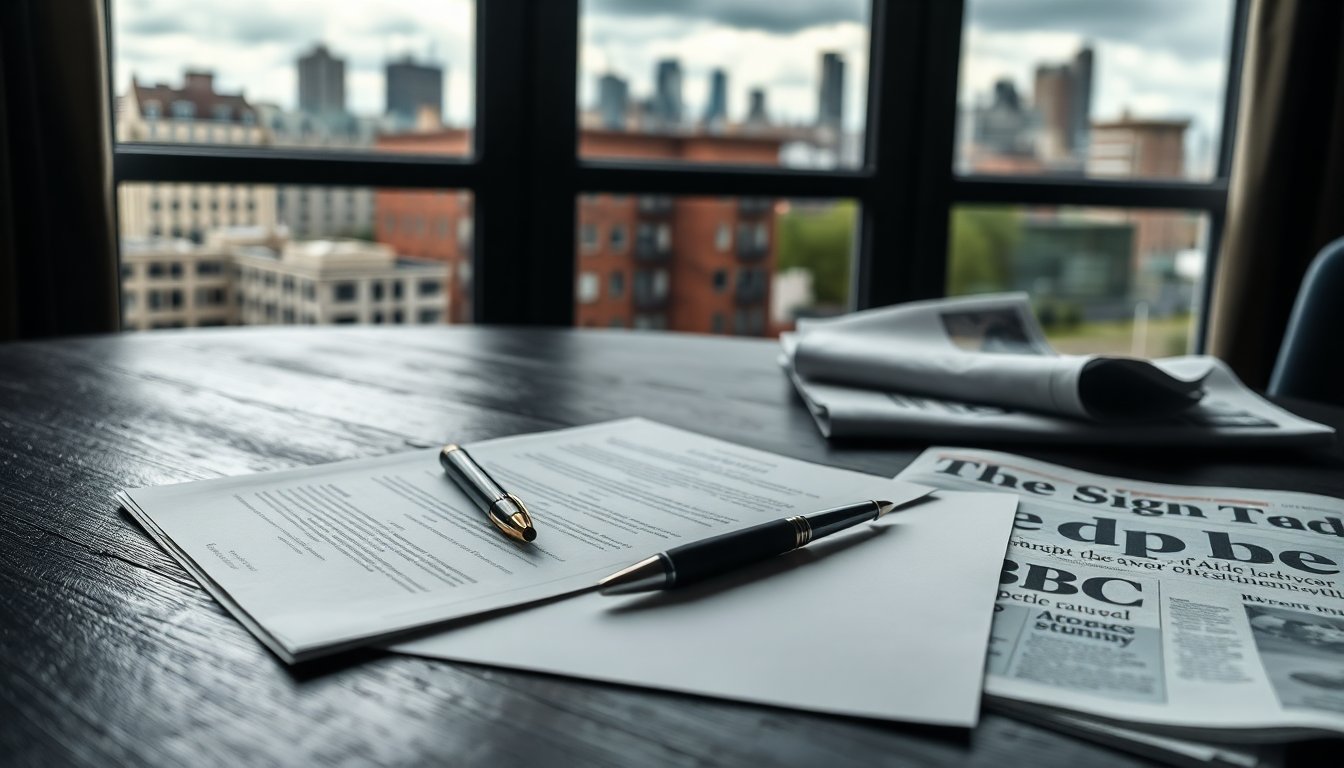Table of Contents
The ongoing situation involving Donald Trump and his threat to sue the BBC has garnered significant attention. It raises important questions about the implications for the media outlet and the larger political landscape. This article explores the reactions from various political figures, investigates the motivations behind Trump’s legal actions, and considers the potential impact on future relationships between public figures and the media.
Trump’s legal challenge: background and motivations
Trump’s threat of legal action against the BBC appears to stem from his long-standing conflict with the media, which he frequently accuses of bias. The timing of this threat, occurring just days before Rachel Reeves‘ budget proposal is set to be released, suggests a calculated effort to shift public attention.
Critics contend that this strategy may not only rally his supporters but also aim to suppress coverage that he perceives as unfavorable.
Political reactions: a bipartisan issue
Reactions to Trump’s lawsuit have varied across party lines. Some political commentators express concern that such legal actions could undermine freedom of the press.
For example, Matthew McGregor, CEO of the campaigning organization 38 Degrees, has voiced his concern regarding the shifting media landscape. He argues that this lawsuit may set a dangerous precedent that could stifle journalistic inquiry.
Conversely, Trump supporters may perceive this lawsuit as a necessary measure to safeguard his reputation against what they view as malicious reporting.
This division highlights the intricate relationship between media representation and political narratives.
Implications for the BBC
The ramifications of Trump’s lawsuit for the BBC are noteworthy. As a publicly funded organization, the BBC must maintain high standards of impartiality and accuracy in its reporting.
A legal dispute initiated by a prominent figure such as Trump could create a chilling effect on how the BBC handles controversial topics, especially those involving influential individuals.
Financial considerations
If the lawsuit moves forward, the BBC could encounter significant financial pressure in mounting its defense.
Legal expenses often rise rapidly, particularly in high-profile cases involving defendants with substantial resources. Critics argue that this situation might divert funds from crucial public service broadcasting projects, complicating the BBC’s operational dynamics.
Additionally, the lawsuit may spark internal discussions about the organization’s editorial guidelines and the necessity for stronger legal protections when addressing politically sensitive subjects.
Political and media landscape under scrutiny
The evolving situation requires close attention to both the legal proceedings and their broader political ramifications. Trump’s actions may act as a crucial test for the durability of press freedoms against influential opponents. The responses from various political factions underscore the contentious dynamics involved and highlight the need for sustained discussions regarding the media’s role in a democratic society.
The intersection of politics and media is set to change continuously. Outlets like the BBC will need to navigate this complex landscape with care. The results of Trump’s lawsuit are expected to have implications beyond the courtroom, shaping how media organizations handle reporting on controversial figures moving forward.





